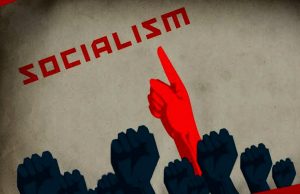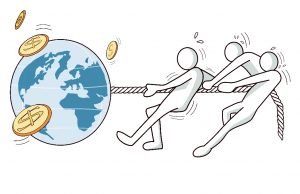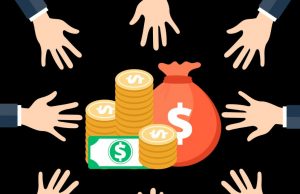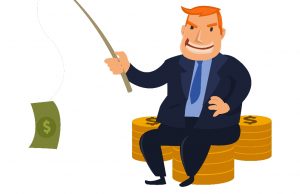Which Economic System Is The Best? The centuries-old, continuous dispute between statist intellectuals and free-market thinkers has significant political and moral implications. On a basic level, the distinctions between the various types of economic systems are clear.

Individual property rights are valued more in certain systems, whereas government regulation of production and distribution is valued more in others. In a nutshell, economic systems are divided into three categories: socialism, capitalism, and mixed economies.
Recommended: Socialism vs Capitalism, Which is Better? Answered
Meaning of Socialism
Socialism is an economic system that is centrally planned and has some degree of governmental or societal control over production. The government regulates the output and pricing of goods and services in the most severe instances of this category. The government makes all choices regarding how products and services are distributed under the most severe variants of the socialist system.

To put it another way, under severe socialism, people are completely depending on the government for food, shelter, money, and healthcare. North Korea, a dictatorship managed by the state, is an extreme example of a totally socialist government.
Also see: Merits and demerits of Capitalism
Meaning of Capitalism
Capitalism is an economic system whereby capital commodities are owned by private persons or enterprises. A market economy produces products and services driven by supply and demand in the marketplace, instead of through central planning, which is known as a planned economy or command economy.

Free market or laissez-faire capitalism is the purest form of capitalism. Private persons are unrestricted here. They may decide where to invest, what to create or sell, and at what rates commodities and services are exchanged. The free market runs without any checks or regulations.
Pure capitalism implies that the less government intervention in the economy, the better off people and companies, as well as the overall economy, are. The term “laissez-faire” generally translates to “let do” or “let alone” in French. In other phrases, there are no government limits, balances, or controls.
Property owner, such as those who own equipment, capital, and other input resources, can negotiate and trade together as they see fit under this extreme version of capitalism, regardless of government demands.
Also see: Limitations and Weaknesses of Quantitative Research
Meaning of a Mixed Economic System
A mixed economic system is one in which enterprises and individuals have private ownership (i.e., capitalism), but there is also some government participation (i.e., socialism) (i.e., socialism). In a mixed economy, the government grants producers and consumers varied degrees of autonomy.

Property rights are also subject to different restrictions in a mixed economy. Property owners are limited in how they communicate with one another. Minimum wage regulations, tariffs, quotas, windfall taxes, licensing limitations, forbidden items or contracts, direct public ownership, anti-trust legislation, legal tender rules, subsidies, and eminent domain are just a few examples of these constraints.
The United States, like nearly every other country on the planet, has a mixed economy. Even relatively free-market nations like Hong Kong and Australia have a mixed economy. Property rights may be infringed in Western democratic republics if a majority of elected representatives believe that such breaches are in the general publics best interests.
Recommended: Major Forms of Government
Which Economic System is the best, Socialism, Capitalism or Mixed Economic System?
Capitalism is the best economic system since it provides so many advantages and possibilities to people in society. Producing money and innovation, improving people’s lives, and giving people power are only a few of the advantages. Individuals can engage in market activity based on their personal purposes under capitalism.

1. Producing Wealth and Innovation: Every individual in a capitalist system has the ability to produce wealth in their lives. Without the use of repressive governmental activities and pressure, capitalism allows a person to effortlessly expand and thrive across the economy by enabling them to engage in whatever action they feel would best benefit them.
Individuals who have developed abilities that producers are ready to pay for are rewarded under capitalism. The essential feature of socialism, on the other hand, is the redistribution of wealth so that everyone is treated equally. Why should a doctor be as wealthy as a dog walker? One mistake socialists make is assuming that wealth redistribution is a desirable and moral proposition.
The distinction is that capitalism rewards people for their achievements and growth by allowing them to enhance their wealth through investing and other market behaviors. Because competition is so prevalent in a capitalistic market, capitalism fosters innovation. Private enterprises strive to give consumers with better, quicker, and less expensive goods and services. This motivates businesses to develop better and more innovative products in order to please customers and outperform competitors. There’s always space for development in everything, and capitalism encourages it via purchases and investment. Consumers will buy the greatest products or services they perceive are available. This motivates manufacturers to create the greatest possible goods.
Recommended: Countries with the Lowest cost of living
2. Improving Lives: How does capitalism make people’s lives better? By just looking back in time, this question may be readily addressed. In 1820, nearly 90% of the world’s population was living in abject poverty. Around 30% of the world’s population lived in severe poverty in 1990. Today, just around 10% of the world’s population is living in severe poverty. The impoverished had a hard time finding food before the industrial revolution.
These people didn’t have access to running water, housing, or basic sanitation. On the other hand, both the affluent and the poor now have access to and benefit from these fundamental essentials. Education, food, warmth and cooling, travel, automobiles, vaccines, and other necessities are now available to people all around the world. Many individuals bring up the issue of economic disparity. Poverty levels have been rapidly declining over the world. Almost every nation now has an average life expectancy of more than 70 years, thanks to advancements in healthcare and living conditions brought about by capitalism. The free market can be blamed for this.
Also see: Top countries with an unwritten Constitution
3. Giving the Power to the People: Among the most important qualities of a free market economy is the freedom to choose. Individuals in a free market have the flexibility to pick which producer they will buy an item or service from, who they will do business with, where they will live, what they will do with their careers, and so on. Individuals have the freedom to choose how they want to live their lives.
Because numerous occupations and abilities are flooding in from all places, this generates a large and wealthy marketplace. Consumers have the power to pick who they buy from, forcing manufacturers to develop the greatest product or service available. Because the state does not compel its inhabitants to do anything, capitalism permits individuals to engage in market activities based on their own preferences and ideas.
Why should the government decide how we spend our lives or enable us to exclusively purchase commodities created by the government? Because everyone has diverse needs, objectives, and ambitions, the government should not do this. We have the flexibility to buy anything we want and pursue whatever occupations we desire, which brings the best in people. The right of an individual to be themselves in relations, to make their own judgments, to be free from the authority of others, and to choose how they want to utilize their services or property rather than others is known as freedom of choice.
Recommended: Advantages and Disadvantages of Working From Home
Conclusion
Capitalism is the perfect economic system for individuals around the globe, since many people throughout history have realized. Capitalism, once again, generates wealth and innovation, enhances people’s lives, and empowers them. Capitalism has always been and will continue to be superior to communism.

Edeh Samuel Chukwuemeka, ACMC, is a lawyer and a certified mediator/conciliator in Nigeria. He is also a developer with knowledge in various programming languages. Samuel is determined to leverage his skills in technology, SEO, and legal practice to revolutionize the legal profession worldwide by creating web and mobile applications that simplify legal research. Sam is also passionate about educating and providing valuable information to people.

Hi there, I check your blogs like every week. Your writing
style is awesome, keep doing what you’re doing!
you fail to address the corrupt and weak US government controlled by super corporations and the fact that we are facing a global climate crisis and it is being neglected and ignored. ontop of that in the USSR there was lower rated of poverty and deaths of malnutrition along with more innovation and less unemployment.
This is helpful